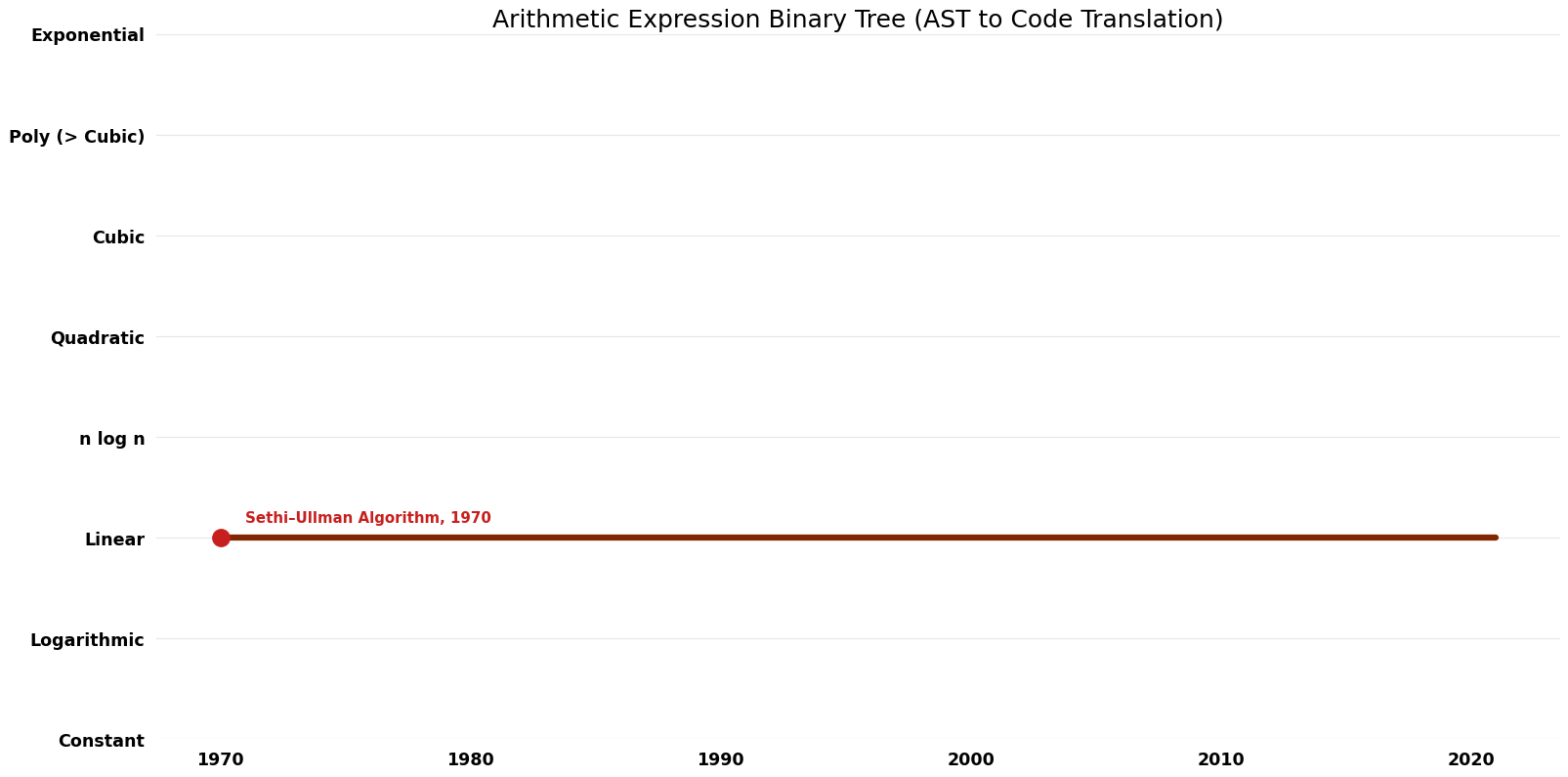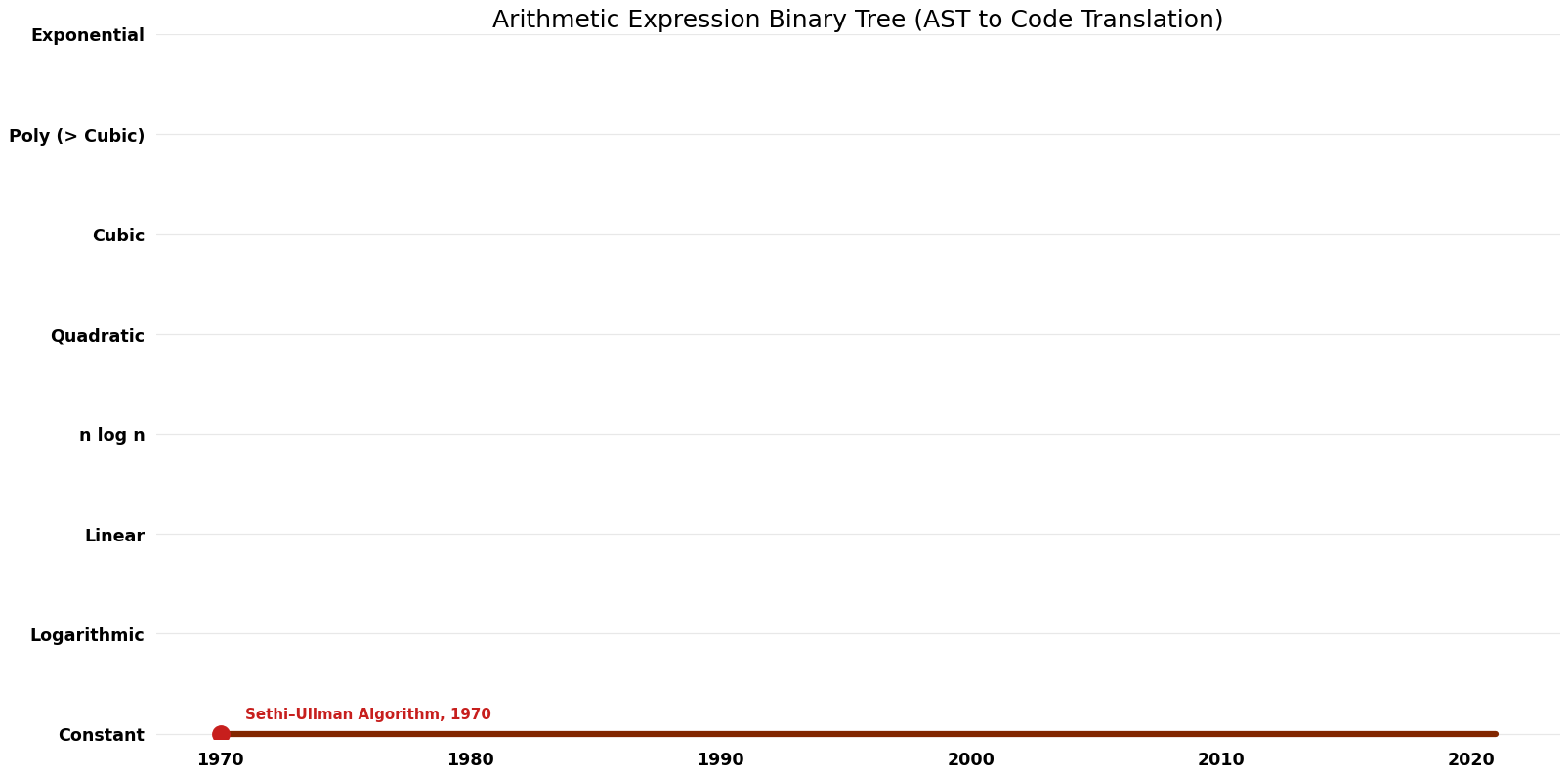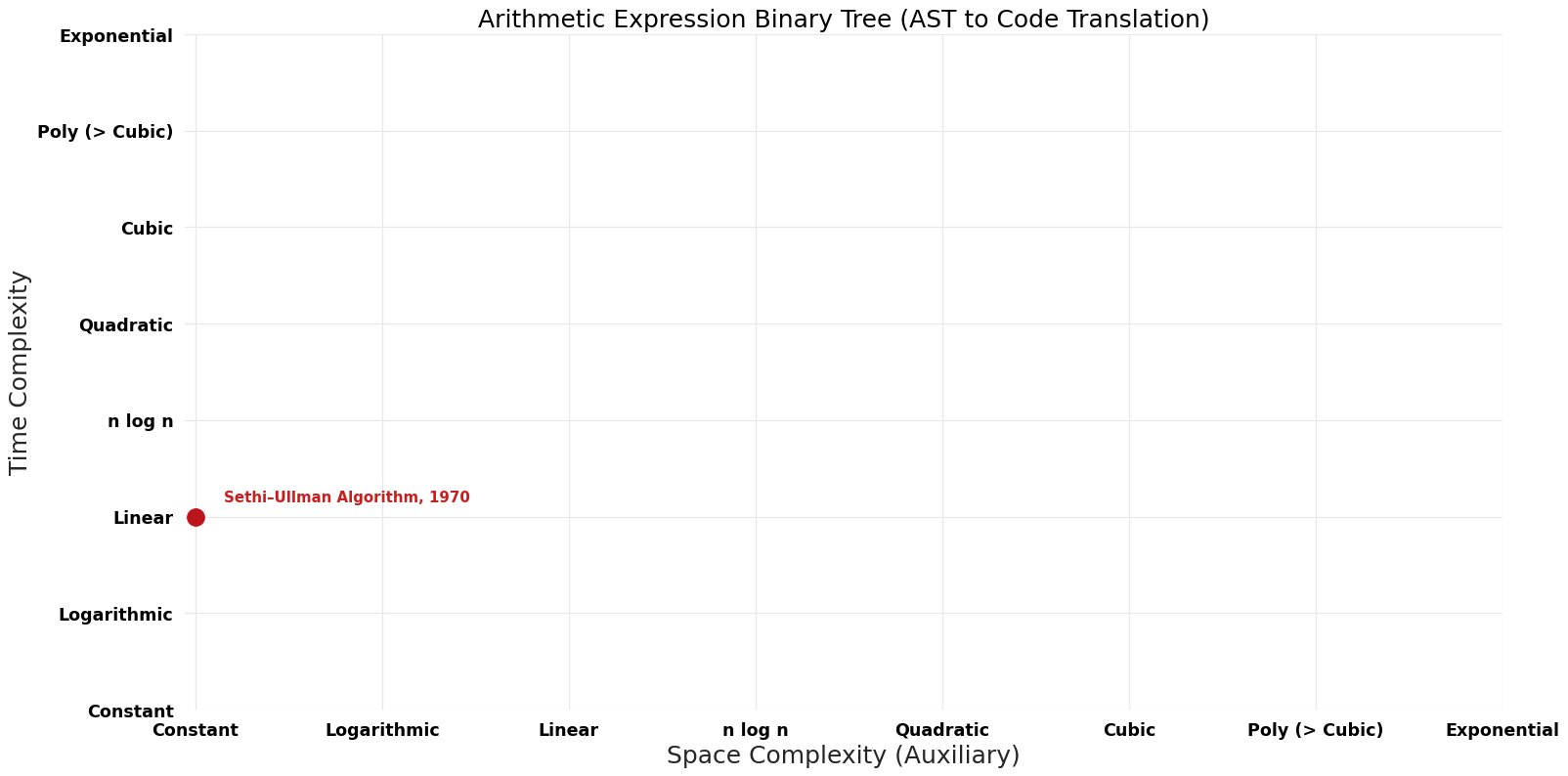Arithmetic Expression Binary Tree: Difference between revisions
Jump to navigation
Jump to search
No edit summary |
No edit summary |
||
| Line 24: | Line 24: | ||
|} | |} | ||
== Time Complexity | == Time Complexity Graph == | ||
[[File:AST to Code Translation - Arithmetic Expression Binary Tree - Time.png|1000px]] | [[File:AST to Code Translation - Arithmetic Expression Binary Tree - Time.png|1000px]] | ||
== Space Complexity | == Space Complexity Graph == | ||
[[File:AST to Code Translation - Arithmetic Expression Binary Tree - Space.png|1000px]] | [[File:AST to Code Translation - Arithmetic Expression Binary Tree - Space.png|1000px]] | ||
== Pareto | == Pareto Frontier Improvements Graph == | ||
[[File:AST to Code Translation - Arithmetic Expression Binary Tree - Pareto Frontier.png|1000px]] | [[File:AST to Code Translation - Arithmetic Expression Binary Tree - Pareto Frontier.png|1000px]] | ||
Revision as of 14:04, 15 February 2023
Description
Translate a given arithmetic expression binary tree into machine-readable code that uses as few registers as possible.
Related Problems
Related: AST to Code Translation
Parameters
$n$: number of nodes in the tree
Table of Algorithms
| Name | Year | Time | Space | Approximation Factor | Model | Reference |
|---|---|---|---|---|---|---|
| Sethi–Ullman Algorithm | 1970 | $O(n)$ | $O({1})$ | Exact | Deterministic | Time |


